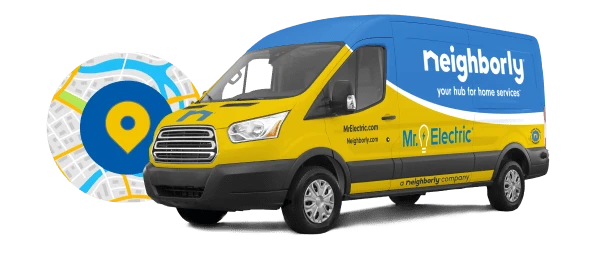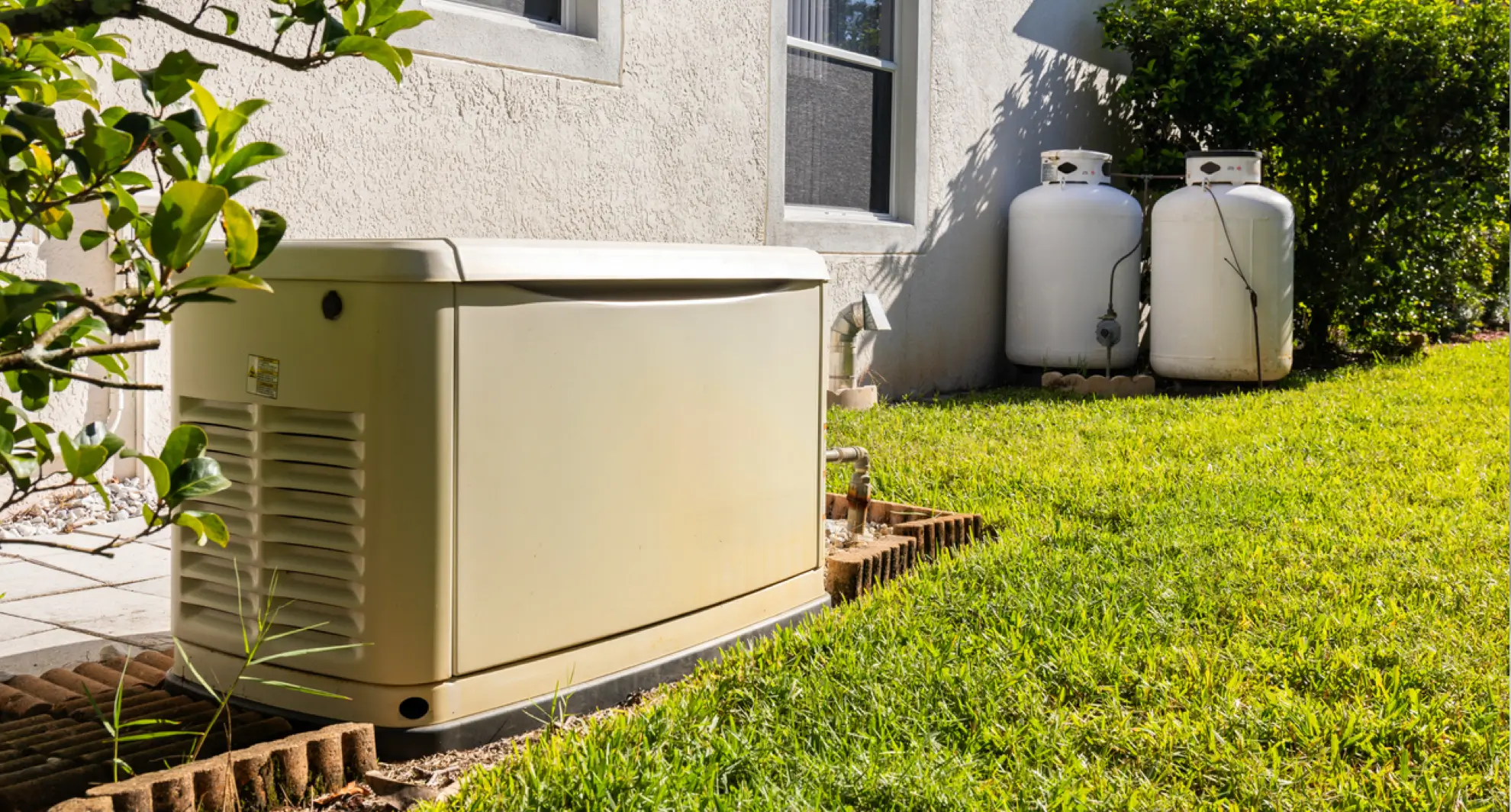
If you're thinking about how to keep the lights on during a power outage, figuring out whether a battery backup or generator is the smarter investment isn't always straightforward. Both options have their perks, and both come with a few catches. Choosing the right one depends on what you need to power, how long you want backup to last, and what kind of upkeep you're willing to deal with.
Before you sink money into a system that doesn't fit your home, it pays to know exactly what you're signing up for. Let's break down the differences between battery backup vs. generator setups so you can identify the best backup power for your home.
What Is a Generator?
A home generator is a backup power source that kicks in when your regular electricity supply goes out. It runs on fuel, typically gasoline, diesel, propane, or natural gas, and uses an internal combustion engine to generate electricity.
At its core, a generator is pretty simple: it converts mechanical energy into electrical energy, giving your home the juice it needs to keep essentials like lights, refrigerators, and HVAC systems running when the grid fails.
Types of home generators
- Portable generators: Smaller, mobile units that need to be manually started and connected to essential appliances or a transfer switch.
- Standby generators: Larger, automatic systems that detect power loss and start up on their own, supplying power directly to your home's circuits.
Generators have long been the traditional go-to for emergency power because they're reliable, widely available, and capable of handling large energy loads. If you're looking for the best backup power for home situations where running major systems is nonnegotiable, a generator is still a strong contender.
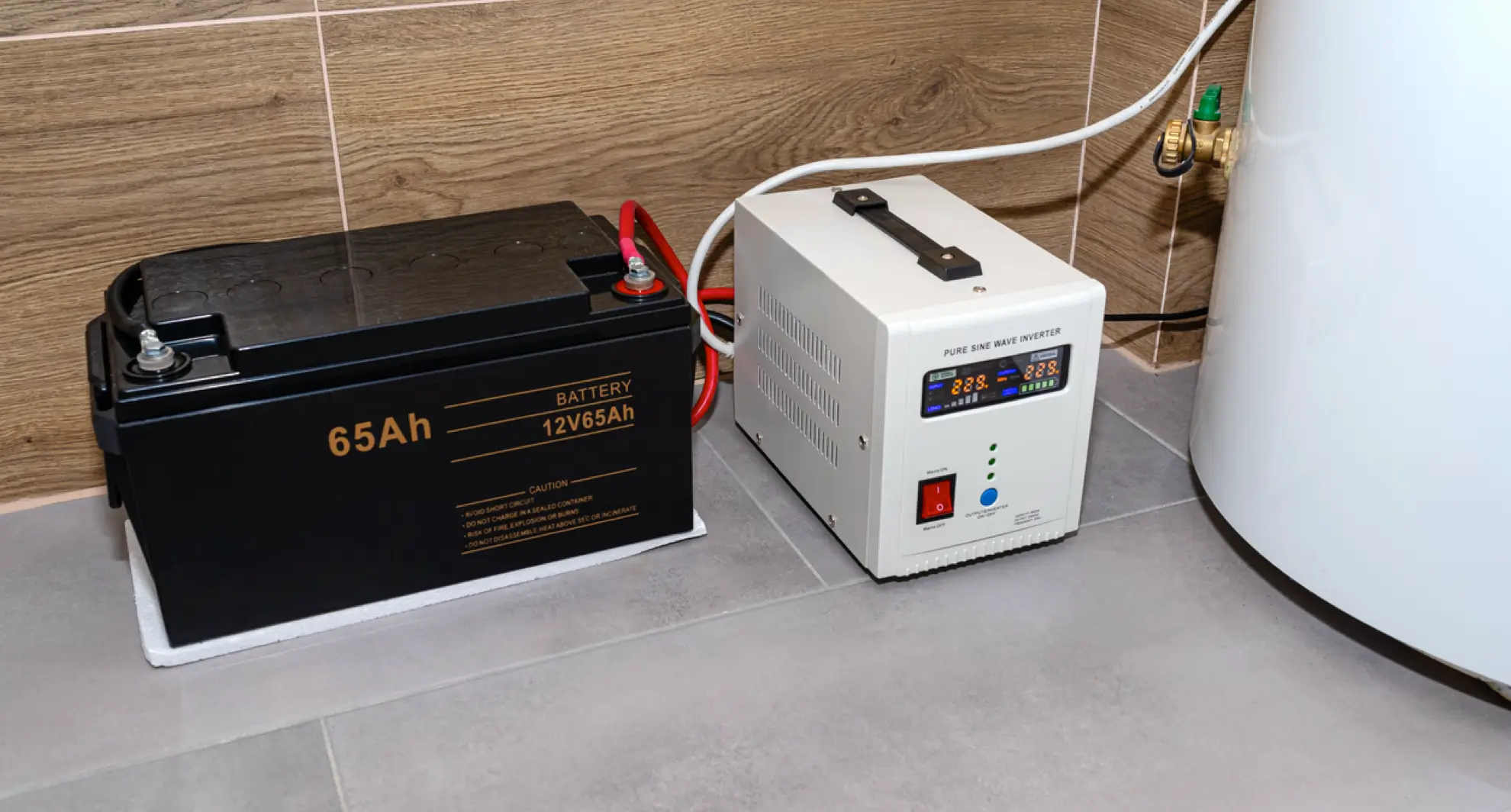
What Is a Battery Backup?
A battery backup is a device or sometimes a network of devices that stores electrical energy and delivers it to your home when the main power supply cuts out. Instead of generating new electricity like a generator, a battery backup taps into stored energy to keep critical systems and outlets alive.
Battery backups can work independently or in tandem with solar panels. Solar-powered battery backups charge up during sunny hours and then discharge when needed, making them one of the most sustainable generator alternatives on the market.
Types of battery backup systems
- Whole-home battery backup: Larger systems designed to power an entire house or multiple large circuits.
- Partial battery backup: Smaller systems that prioritize keeping specific circuits (like your refrigerator, Wi-Fi, and lighting) operational during an outage.
If you're serious about efficiency, green energy, and cutting down long-term maintenance costs, battery backups are quickly becoming the smarter pick for a lot of households.
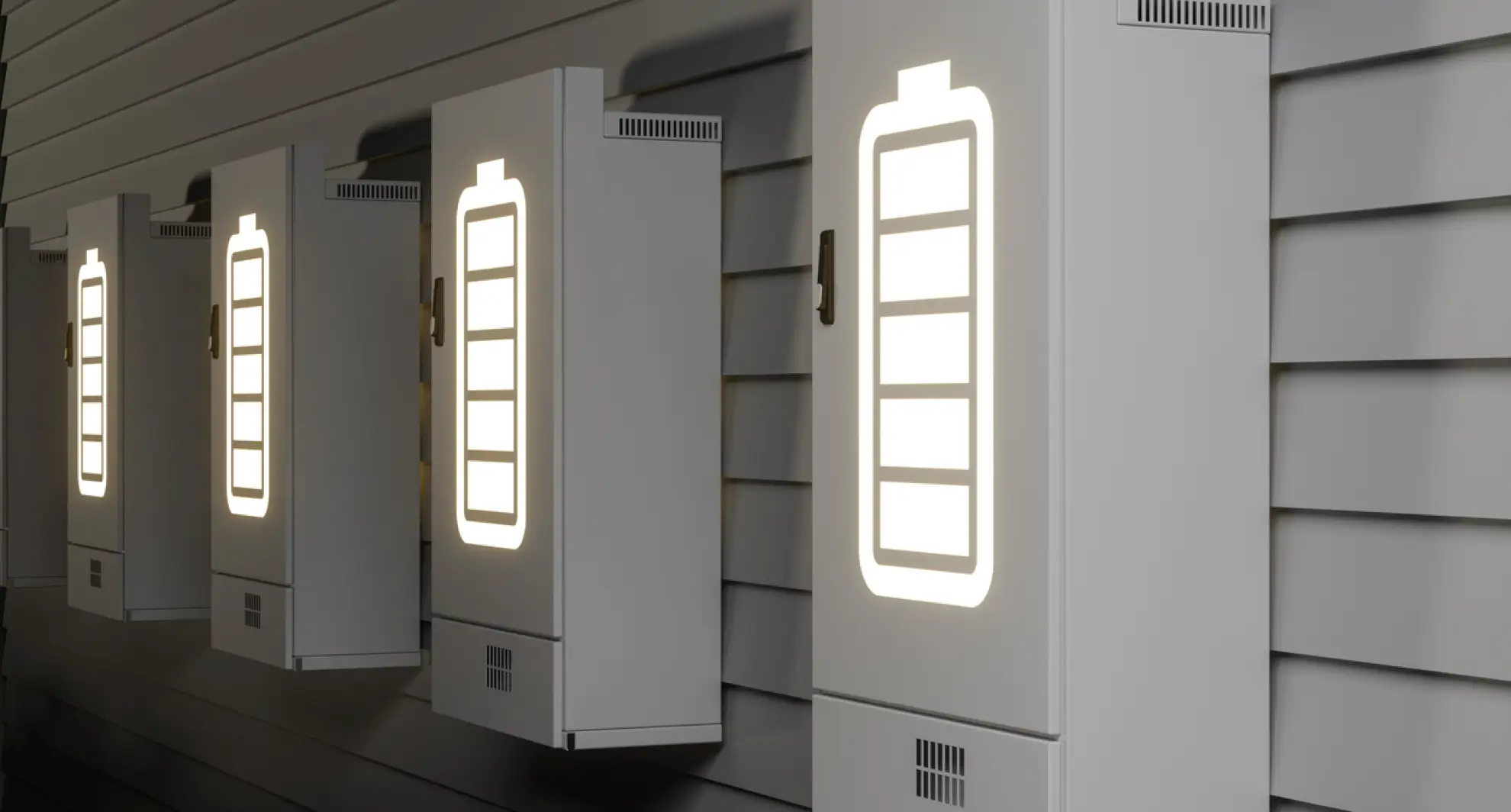
Battery Backup vs. Generator: Pros and Cons
Choosing the best backup power for your home use depends on what matters most to you, whether it's convenience, cost, sustainability, or power output. Here's a straightforward breakdown of a battery backup vs. a generator:
Battery backup pros
- Instant power: No startup lag. Your lights and critical systems stay on seamlessly.
- Silent operation: No noisy engines running outside your window.
- Low maintenance: No oil changes, fuel storage, or regular engine servicing required.
- Environmentally friendly: Especially when paired with solar panels, battery backups cut your reliance on fossil fuels.
- Smaller footprint: Compact and sleek with no giant machine sitting in your yard.
Battery backup cons
- Higher upfront cost: Installing a whole-home battery system can be pricey.
- Limited power duration: Without solar recharge, the battery will eventually deplete.
- Not ideal for heavy loads: Running energy-hungry appliances like central AC systems for extended periods can quickly drain the battery.
Generator pros
- High power output: Easily runs large systems like HVAC units, sump pumps, and water heaters.
- Long runtime: As long as you have fuel, you can keep the power going indefinitely.
- Lower initial cost: Portable generators especially have a smaller price tag compared to full battery setups.
Generator cons
- Noise and vibration: Even the quieter models aren't exactly subtle.
- Fuel dependency: You'll need to keep gasoline, diesel, propane, or natural gas on hand and store it safely.
- Regular maintenance: Generators need routine maintenance, even when not in use.
- Emission concerns: Traditional generators release carbon monoxide and other pollutants.
Both systems have clear strengths and trade-offs. It comes down to your priorities, whether you want long-lasting, heavy-duty power or a cleaner, low-maintenance solution.
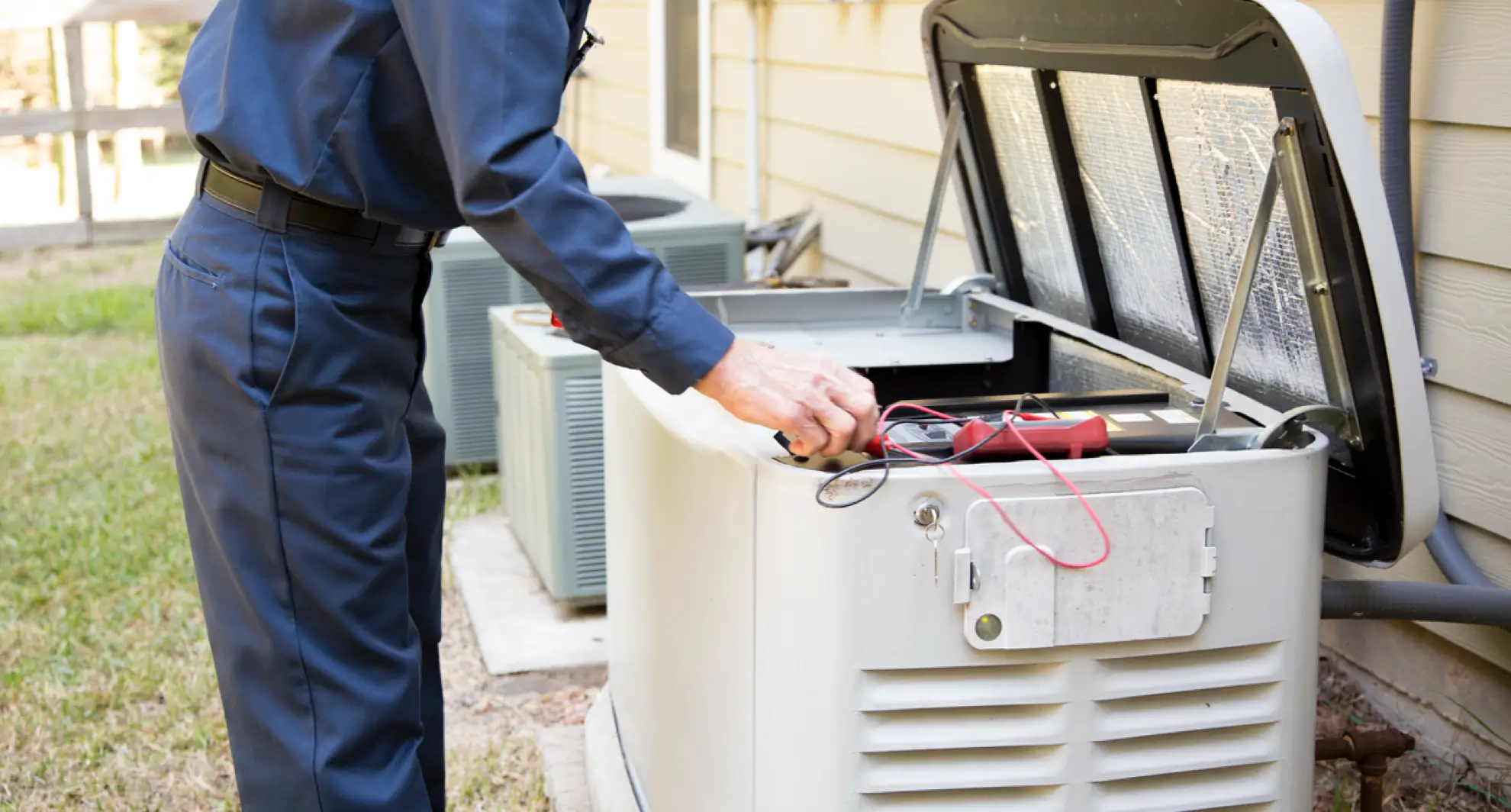
When Is a Generator the Best Choice?
Sometimes, old-school muscle wins the day. A generator might be your best option if:
- You need to power large appliances: If running central air, electric water heaters, or heavy-duty sump pumps is nonnegotiable, a generator can handle the load without breaking a sweat.
- You expect long outages: In areas prone to multi-day blackouts, a generator that can run as long as you have fuel can be essential.
- You want lower upfront costs: If you're looking for immediate backup without shelling out for a full home battery system, a generator, especially a portable one, is a more budget-friendly start.
- You live somewhere with easy access to fuel: If your home already has a natural gas line or you have a secure place to store propane or diesel, managing your generator fuel supply becomes easier.
Just remember: generators require regular maintenance, and you'll want to make sure they're installed safely. That's a job for a trained professional who understands the National Electrical Code, not a DIY Saturday project.
When Is a Battery Backup the Best Choice?
If you like your backup power silent, seamless, and smart, a battery backup could be exactly what you need. You might lean toward battery backup or generator alternatives like solar battery systems if:
- You want clean, quiet backup power: Battery backups operate with zero noise and no exhaust fumes, perfect if you're tired of gas smells or noisy engines.
- You live somewhere with short outages: If your local power cuts tend to last a few hours rather than a few days, a battery backup can easily keep the essentials running without a hitch.
- You're thinking long-term: While installation costs are higher, battery backups often pay off over time, especially when paired with home solar setups.
- You have limited space: Battery backups are compact, wall-mounted systems that won't eat up real estate in your garage or yard.
- You want low maintenance: No oil changes, fuel storage, or emergency supply runs—once installed, battery backups are practically hands-off.
Plus, if you want to reduce your carbon footprint, batteries powered by solar panels offer a major sustainability bonus.
Battery Backup vs Generator: Final Thoughts
The question of a battery backup vs. a generator really comes down to how you live and how you want to ride out a blackout. If you need big-time power for days on end, a generator might make more sense. If you're after quiet, low-maintenance protection for shorter outages, a battery backup is tough to beat.
No matter what you decide, having a backup plan puts you a step ahead when the grid goes down. And remember: it's smart to get a professional opinion. Electrical systems are complex, and proper installation matters for safety, efficiency, and warranty protection.
Find the Right Backup Power Solution with Mr. Electric
Still weighing the pros and cons of a battery backup vs. a generator? You don't have to figure it out alone. Your local Mr. Electric® can walk you through your options, explain what's best for your home's needs, and handle the installation safely and correctly. Plus, we back all our services with the Neighborly Done Right Promise®, so you know you'll be happy with our work. Schedule your consultation with Mr. Electric today and take control of your home's backup power.
This article is intended for general guidance only and is not applicable to every situation. You are responsible for determining the proper course of action for your property and situation. Mr. Electric is not responsible for any damages that occur as a result of advice and/or guidance derived from its blog content.
Some Mr. Electric services vary by location. Contact your local Mr. Electric franchise for more information.
FAQs about Battery Backup vs. Generator
The safety of you, your family, and home are the top priority of every Mr. Electric service professional. Our safety-first commitment to solving your electrical issues includes a meticulous attention to detail on every job. Our commitment also includes using our years of experience to answer your questions. Below are answers to some of the most frequently asked questions about a battery backup vs. a generator.
How long can a battery backup power a home?
It depends on the size of the battery system and how much electricity you're using. Some home battery backups can keep essential devices running for several hours to a full day. If you pair a battery system with solar panels, you can extend that time even longer by recharging during daylight hours.
Can I power my whole house with a battery backup?
It's possible, but you'll need a large-capacity system to do it. Most residential battery backups run essential circuits like refrigerators, lighting, and medical equipment rather than the entire home. A trusted electrician can help you design a system that matches your priorities and budget.
What maintenance does a home generator need?
Generators need regular oil changes, filter replacements, and system inspections to stay reliable. You'll also want to run the generator periodically, even if you don't need it, to keep parts lubricated and make sure it starts easily when an outage hits.

